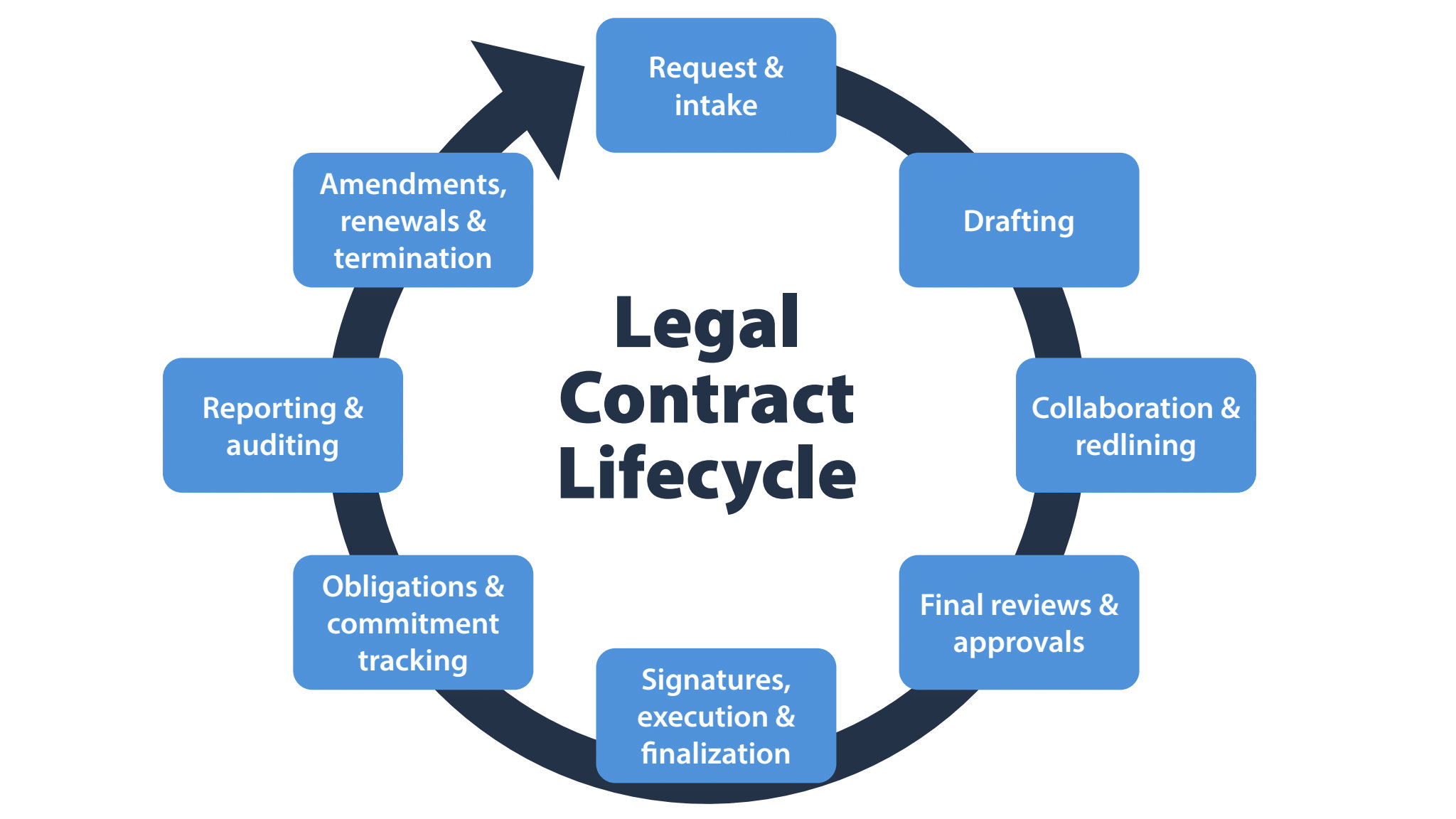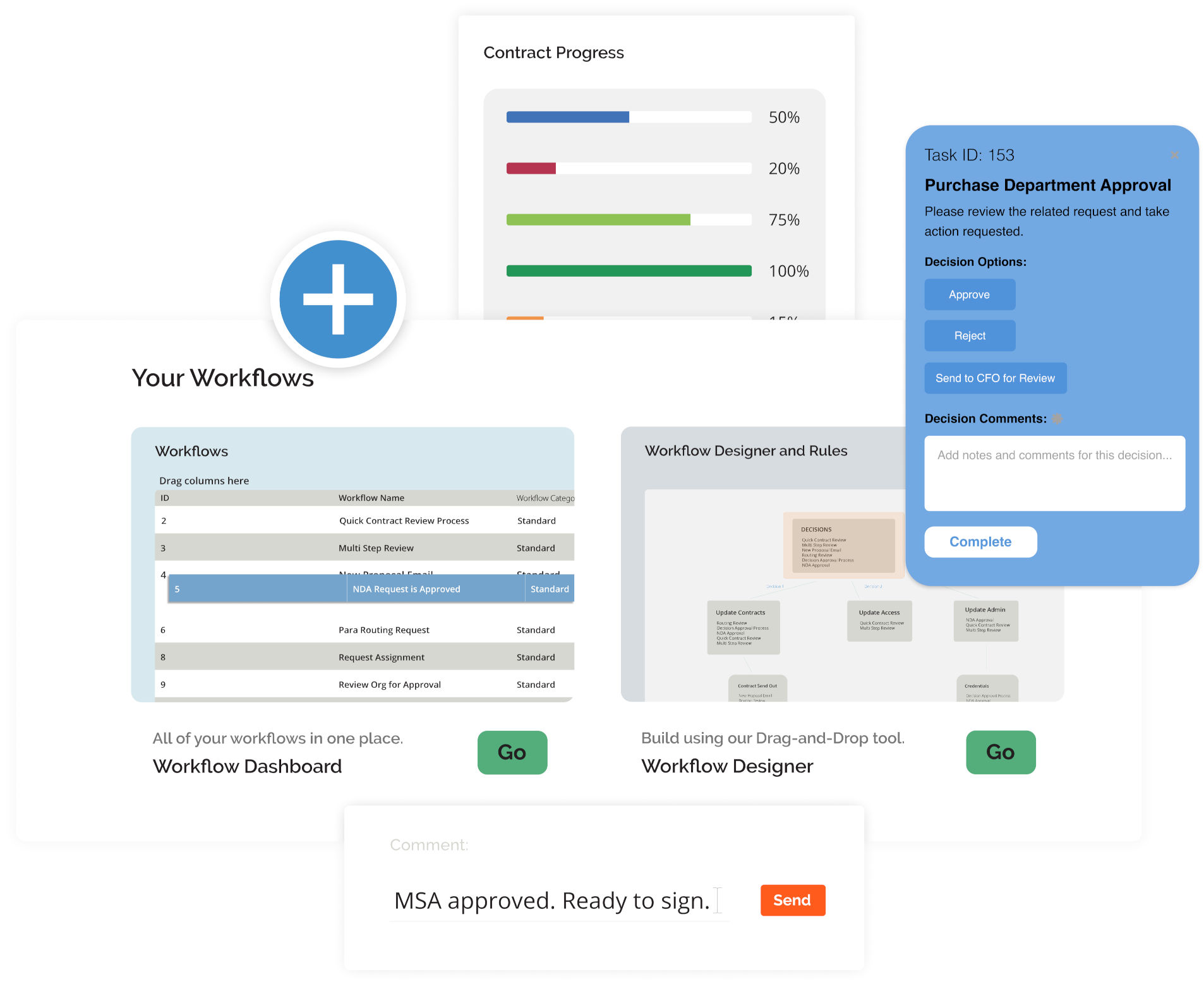Overcoming CLM Adoption Challenges with Managed Services for Contract Management
Contract management has shifted from being a siloed repository to an enterprise-wide system of record that connects legal, procurement, and sales. Despite growing investments in CLM technology, adoption remains the Achilles’ heel. Many organizations never see full ROI because users revert to manual processes, data quality declines, and workflows drift from policy. Gartner estimates that nearly half of contract lifecycle management (CLM) implementations fail, not because of poor technology, but because organizations cannot sustain adoption.
This article explores why adoption breaks down and how managed services for contract management provide a long-term solution that ensures technology delivers measurable value.
Quick Takeaways
- Adoption is the #1 reason CLM projects underperform.
- Managed services turn adoption into an ongoing process instead of a one-time event.
- Contract Logix’s COaaS model ensures configuration, data management, training, and optimization remain continuous.
- Continuous adoption support accelerates ROI, improves compliance, and prepares organizations for AI-driven contract intelligence.
You Want AI to Do What?! Discover the 3 steps for foundational contract management in our free whitepaper. Download it here.
The Common Challenges of Digital Adoption in Contract Operations
Adoption barriers typically emerge once the software is live. Even best-in-class systems fail when CLM adoption stalls and users don’t fully embrace the platform. Common challenges include:
- Resistance to change: Employees revert to manual processes instead of adopting digital workflows.
- Training and enablement gaps: Teams may not understand the system’s full capabilities or how to apply them.
- Data migration issues: Inaccurate or incomplete legacy data erodes trust in the platform.
- Underutilized functionality: Features remain dormant, limiting ROI.
- Lack of governance: Without structured oversight, workflows drift from policy, leading to inconsistency and compliance gaps.
These hurdles highlight that technology alone cannot transform contract operations.
Why Adoption Often Stalls After Implementation
Most organizations invest significant resources in implementation projects: setting up configurations, migrating data, and training users. However, once the project ends, momentum often fades.
Internal teams may lack the time or expertise to continuously optimize the system. Features go unused, data quality declines, and reporting gaps persist. Without ongoing governance, contract management adoption erodes, and contract operations slide back into inefficiency.
The result is organizations struggling to prove ROI, with 90% unable to report how long contracts take to complete or how effectively they meet payment terms.
Managed Services as the Adoption Accelerator
Managed services for contract management extend beyond implementation by delivering continuous expertise, support, and optimization. By treating adoption as a service rather than a one-time event, organizations ensure long-term success with their contract management platforms.
Resistance to Change
Employees often revert to familiar manual processes, slowing digital adoption. Managed services provide ongoing coaching and phased rollout strategies that help teams adjust gradually, building confidence and reinforcing the value of new workflows.
Training Gaps
Initial training sessions rarely prepare employees for long-term success. Managed services deliver recurring enablement and refresher programs so users can fully leverage advanced features and apply them in daily operations.
Data Quality Issues
Inaccurate or incomplete data undermines trust in the system. Managed services continuously monitor, cleanse, and validate contract data, ensuring accuracy and reliability for reporting, analytics, and decision-making.
Underutilized Features
Many organizations leave powerful system capabilities untouched. Managed services conduct proactive reviews to identify dormant features, introduce them into daily processes, and unlock new sources of efficiency.
Governance Gaps
Without structured oversight, workflows drift away from organizational policies. Managed services maintain governance through updated playbooks, reporting, and compliance checks that keep contract operations consistent and auditable.
The Contract Logix Advantage: COaaS in Action
Contract Logix integrates managed services directly into its Contract Operations as a Service model, making adoption a built-in benefit rather than an optional add-on. This approach ensures that organizations not only implement contract management software but also sustain adoption for measurable ROI.
Configuration and Implementation
Successful adoption starts with a strong foundation. Contract Logix configures workflows to align with business needs while ensuring usability and compliance from day one.
Data Management
Clean and reliable data is essential for visibility and trust. Through ongoing data management, Contract Logix keeps contract records accurate, current, and ready for analysis across legal, procurement, and sales functions.
Day-to-Day Support
Users adopt technology when they can rely on it daily. Contract Logix provides real-time assistance to help employees resolve issues quickly and remain engaged with the system.
Ongoing Optimization
Business requirements, regulations, and priorities change. Contract Logix continuously refines configurations and processes to ensure the platform evolves alongside organizational goals.
Business Continuity
Internal staffing changes can disrupt adoption. Contract Logix delivers expert continuity so organizations maintain consistent contract operations, even during transitions.
The Strategic Payoff of Continuous Adoption Support
Organizations that treat adoption as a continuous service rather than a milestone realize significant advantages:
- Faster ROI: Features are fully leveraged, ensuring technology investments pay off quickly.
- Lower long-term costs: Managed services reduce the need for additional internal staffing and external consultants.
- Improved compliance: Governance guardrails keep processes consistent and aligned with regulations.
- Greater visibility: Real-time data accuracy enables better risk assessment and financial insights.
- Scalability: As organizations grow, managed services help systems adapt seamlessly.
In a market where pricing models are shifting toward outcome-based approaches, contract operations managed services ensure organizations maximize the value of their investment.
Looking Ahead: Future-Proofing Adoption with AI
The contract management market is evolving quickly. In the next five years, platforms will move from static repositories to intelligent, predictive partners. AI-driven features like risk identification, redline suggestions, and clause analysis are already reshaping workflows.
Yet these innovations introduce new adoption hurdles. Teams must trust AI outputs, keep playbooks updated, and adapt to evolving best practices. Managed services provide the expertise to phase in AI adoption, beginning with legacy data extraction and contract summaries, then advancing to redlining and risk scoring.
Without this guided approach, organizations risk falling behind competitors who integrate AI into their operations with structured support.
Strengthening Contract Operations Through Managed Services
Adoption challenges can derail even the most advanced contract management platform. Technology alone is not enough; continuous support is what ensures lasting success.
By leveraging managed services for contract management, organizations gain a partner committed to ongoing adoption, optimization, and ROI. Contract Logix’s Contract Operations as a Service makes adoption sustainable, future-proof, and measurable.
FAQs
Q: Why do CLM projects fail?
A: Many contract lifecycle management (CLM) projects fail because organizations underestimate the importance of adoption. Challenges such as resistance to change, poor data migration, underutilized features, and lack of governance often cause users to revert to manual processes. Gartner estimates that nearly half of CLM implementations underperform, not due to technology, but because adoption cannot be sustained.
Q: What are managed services for contract management?
A: Managed services for contract management provide continuous expertise, support, and optimization beyond the initial implementation phase. These services include configuration, data management, user training, governance, and ongoing optimization to ensure contract management platforms deliver measurable value and long-term ROI.
Q: How do managed services improve CLM adoption?
A: Managed services improve CLM adoption by treating it as an ongoing process instead of a one-time milestone. They address common adoption barriers through recurring training, proactive feature rollout, continuous data quality management, and governance support. This ensures users fully embrace the system, compliance is maintained, and the organization realizes faster, more sustainable ROI.
Accelerate Adoption Today with Contract Logix
Organizations that invest in managed services for contract management ensure their systems deliver long-term value, scalability, and compliance.
Ready to maximize your contract management investment? Discover how Contract Logix’s Contract Operations as a Service ensures sustained adoption, accelerates ROI, and prepares your organization for the future of AI-driven contract operations. Schedule a demo with Contract Logix today.
Navigate CLM Success With Contract Logix
Download our Data Extraction Product Brief to learn how you can begin to navigate CLM success by automating the hard work using artificial intelligence with one of the best Contract Management Software’s on the market today




